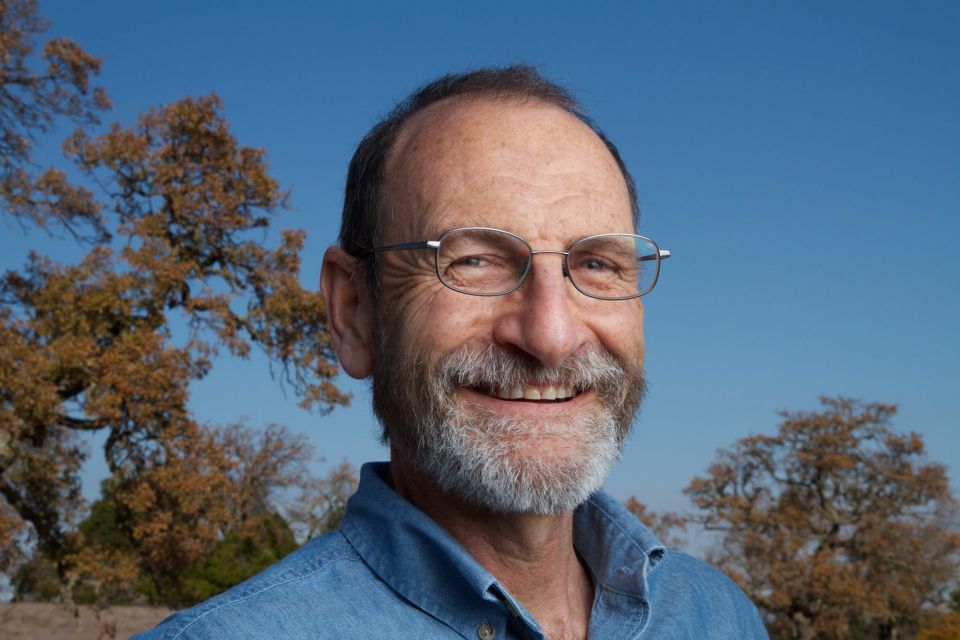Christopher B. Field, one of the world’s preeminent climate scientists and founding director of the Carnegie Institution’s Department of Global Ecology at Stanford, has been appointed to serve as the Perry L. McCarty Director of the Stanford Woods Institute for the Environment.
His selection was announced Tuesday by Provost John Etchemendy and Ann Arvin, vice provost and dean of research. Field will succeed Jeffrey Koseff and Barton “Buzz” Thompson, who have led Woods, an interdisciplinary institute for research on the environment and sustainability, since its was established in 2004 as the Stanford Institute for the Environment. The institute was renamed the Stanford Woods Institute in 2006 in honor of Priscilla and Ward Woods, ’64.

Chris Field (Image credit: Paul Sakuma/Courtesy of Stanford Woods Institute)
Field will assume the directorship in September.
“Chris Field has exemplary scientific credentials and has been an energetic, effective leader both on campus and in the broader scientific community,” Etchemendy said. “He is remarkably well positioned to lead the Woods Institute as it works to connect Stanford’s solutions-oriented environment research to action.”
Arvin said Field’s background is well-aligned with Woods’ mission and approach.
“Woods brings together researchers from across Stanford’s seven schools to pioneer the knowledge and solutions needed to solve the world’s major environmental challenges,” Arvin said. “Chris Field has convened hundreds of scientists across disciplines and around the globe to advise world leaders on climate change. His accomplishments and approach embody the spirit of interdisciplinary collaboration that has been a hallmark of Woods since its inception.
“We want to thank Jeff Koseff and Buzz Thompson for their exceptional leadership and deep commitment to the Woods Institute, and look forward to its next chapter under Chris’ leadership,” Arvin said of the current Perry L. McCarty directors.
Field is the Melvin and Joan Lane Professor for Interdisciplinary Environmental Studies and holds professorial appointments in Earth System Science and Biology. He is also a senior fellow in both the Stanford Woods Institute and the Precourt Institute for Energy. He has been deeply involved with national and international efforts to advance science and assessment related to global ecology and climate change. His research emphasizes impacts of climate change, from the molecular to the global. For two decades, he has led major experiments on responses of California grassland to multi-factor global change.
“The Stanford Woods Institute has been fabulously successful in its first dozen years,” Field said. “It has put Stanford on the map as an international leader in innovative environmental research and solutions, and it has created a wonderful sense of shared mission across Stanford’s seven schools. Buzz, Jeff and everyone involved with the Stanford Woods Institute should be justifiably proud. It is humbling, but also energizing, to think about new possibilities for the years ahead.”
Field led a United Nations Intergovernmental Panel on Climate Change (IPCC) research team charged with distilling the work of thousands of research papers by scientists around the globe into comprehensive reports on assessing risk and increasing resilience to global warming.
This effort and others led by Field were central to negotiations for an international climate action agreement forged in Paris last December. Known for his communication skills, Field’s colleagues have high praise for his ability to get scientists and policymakers to speak one language about climate change, its impacts and potential responses.
“Chris’ tireless, patient work to coordinate the scientists working to inform the IPCC is well known. He’s developed a reputation as a master negotiator who understands the way individual parts of a larger system work together,” said Thompson, the Robert E. Paradise Professor in Natural Resources Law. “His expertise and deep experience at the intersection of research and policymaking will be a tremendous asset to Woods.”
So too will be Field’s ability to grasp fundamental concepts and techniques with application across a wide range of scientific disciplines, according to Koseff, the William Alden Campbell and Martha Campbell Professor of Civil and Environmental Engineering. “Chris has an excellent sense of what the most important problems are that we should be working on, and the ability to see and articulate challenges and potential solutions from multiple perspectives. This is essential to Woods’ mission to catalyze interdisciplinary research and foster engagement between scholars and stakeholders in the public, private and nonprofit sectors,” Koseff said.
Like Koseff and Thompson, Field’s Stanford colleagues look forward to his tenure as Woods director.
“Chris is very talented and experienced at leading diverse groups of researchers – both inside Stanford and internationally – and that bodes well for his role as our Institute leader,” said Pamela Matson, the Chester Naramore Dean of the School of Earth, Energy & Environmental Sciences. “He understands, better than just about anyone I know, the importance of making scientific knowledge accessible and useful to decision-makers of all kinds, and that knowledge will serve us very well.”
Field is a recipient of a Heinz Award and an elected member of the National Academy of Sciences. His research has been recognized with several American and international awards, including the Max Planck Research Award, the BBVA Frontiers of Knowledge Award, the Roger Revelle Medal and the Stephen H. Schneider Award for Outstanding Climate Science Communication. He is a fellow of the American Academy of Arts and Sciences, the American Association for the Advancement of Science, the American Geophysical Union and the Ecological Society of America. Field received his doctorate from Stanford in 1981 and has been at the Carnegie Institution since 1984. He also served as faculty director of Stanford’s Jasper Ridge Biological Preserve.